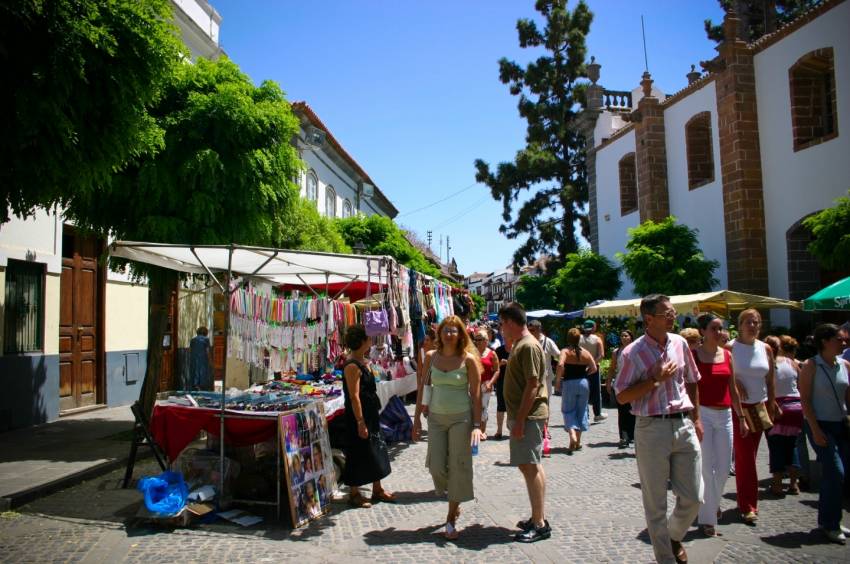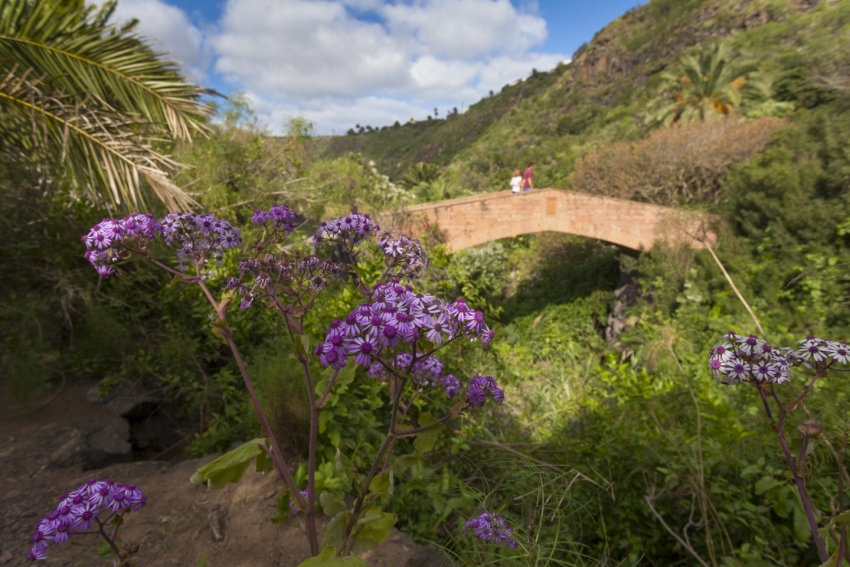Life in Teror revolves around the huge church and its square. It's home to the island's Patron Saint and the destination for the island's biggest annual pilgrimage. The famous weekly market is around the church and the town's prettiest streets run off the square.
From tree to global fame
The Virgen del Pino icon appeared up a giant pine tree in 1481. Catholic icons had a habit of doing this in the Canaries as the pre-Hispanic locals regarded trees as sacred. The icon's fame spread with Canarian emigrants to South America and even today she has followers from Venezuela to California.
The original church built on the spot used part of the tree to hold up its roof and subsequently fell down when it died. The current church dates back to 1767. It's open most days and you can head in to see the icon in all her finery: Well, most of it: Lots of her jewels were pinched in a daring raid in 1975. Please be respectful (put a shirt on) in the church as it is regarded as sacred by lots of Canarians.
Once a year the icon get a spin around town during the annual Fiestas del Pino. Every decade or so she's carried down to Las Palmas for a visit to the cathedral.
Pilgrimage party
Canarians don't need much of an excuse for a party and the annual Fiestas del Pino are big in Teror. People from all over the island walk through the night to get to Teror in the morning for mass. Some do it on their knees to ask for favours or give thanks for miracles. Once the mass is over the party starts with lots of local music and vast amounts of sausage sandwiches
The ultimate garlic sausage
Teror's other claim to fame is as the birthplace of the Chorizo de Teror: A lurid orange thing that is more like a paté in a skin than a sausage. It's made from pork, paprika and vast amounts of raw garlic. Canarians love the stuff and eat it spread on bocadillo bread. Visitors find it more challenging due to the sheer amount of garlic. Do try it, but don't be surprised if less adventurous people back away from you for a couple of days.
Market
On Saturday afternoon and Sunday, the church square is full of market stalls selling everything from leather goods to local cheese, bread and chorizos. Two local products are worth tracking down:
Pan de papas is local bread made with potato. It's slightly sweet and makes great toast.
Nun pastries: Made by the nuns at the nearby Cistercian nunnery, these are similar to shortbread and make a good snack for the drive home.
Other stuff
Most of Teror's other attractions are within yards of the church square: There's a bishop's palace behind the church, a fountain, and a great old Canarian house with interior courtyard and balconies. Called the Casa Museo de Los Patrones it's just up from the front entrance of the Basilica on the main Calle Real street (the one with all the balconies).














